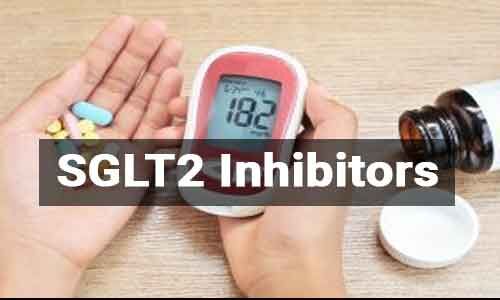- Home
- Medical news & Guidelines
- Anesthesiology
- Cardiology and CTVS
- Critical Care
- Dentistry
- Dermatology
- Diabetes and Endocrinology
- ENT
- Gastroenterology
- Medicine
- Nephrology
- Neurology
- Obstretics-Gynaecology
- Oncology
- Ophthalmology
- Orthopaedics
- Pediatrics-Neonatology
- Psychiatry
- Pulmonology
- Radiology
- Surgery
- Urology
- Laboratory Medicine
- Diet
- Nursing
- Paramedical
- Physiotherapy
- Health news
- Fact Check
- Bone Health Fact Check
- Brain Health Fact Check
- Cancer Related Fact Check
- Child Care Fact Check
- Dental and oral health fact check
- Diabetes and metabolic health fact check
- Diet and Nutrition Fact Check
- Eye and ENT Care Fact Check
- Fitness fact check
- Gut health fact check
- Heart health fact check
- Kidney health fact check
- Medical education fact check
- Men's health fact check
- Respiratory fact check
- Skin and hair care fact check
- Vaccine and Immunization fact check
- Women's health fact check
- AYUSH
- State News
- Andaman and Nicobar Islands
- Andhra Pradesh
- Arunachal Pradesh
- Assam
- Bihar
- Chandigarh
- Chattisgarh
- Dadra and Nagar Haveli
- Daman and Diu
- Delhi
- Goa
- Gujarat
- Haryana
- Himachal Pradesh
- Jammu & Kashmir
- Jharkhand
- Karnataka
- Kerala
- Ladakh
- Lakshadweep
- Madhya Pradesh
- Maharashtra
- Manipur
- Meghalaya
- Mizoram
- Nagaland
- Odisha
- Puducherry
- Punjab
- Rajasthan
- Sikkim
- Tamil Nadu
- Telangana
- Tripura
- Uttar Pradesh
- Uttrakhand
- West Bengal
- Medical Education
- Industry
SGLT2 inhibitors triple DKA risk in type 2 diabetes patients, finds study

Canada: The use of SGLT-2 inhibitors increases the risk for diabetic ketoacidosis (DKA) threefold in patients with type 2 diabetes (T2D), according to a recent study in the journal Annals of Internal Medicine.
SGLT-2 inhibitors are used for the treatment of diabetes and heart failure. Antonios Douros, Lady Davis Institute, Montreal, Quebec, Canada, and colleagues assessed whether SGLT-2 inhibitors, compared with dipeptidyl peptidase-4 (DPP-4) inhibitors increase the risk of DKA in patients with type 2 diabetes.
This population-based cohort study involved electronic health care databases from seven Canadian provinces and the United Kingdom, from which 208,757 new users of SGLT2 inhibitors were propensity-matched 1:1 to new dipeptidyl peptidase-4 inhibitor users. Of those taking an SGLT2 inhibitor, 42.3% took canagliflozin, 30.7% dapagliflozin.
Cox proportional hazards models estimated site-specific hazard ratios (HRs) with 95% CIs of DKA comparing receipt of SGLT-2 inhibitors with receipt of DPP-4 inhibitors, which were pooled by using random-effects models.
Read Also: SGLT2 inhibitor Bexagliflozin reduces blood sugar, high BP and weight in diabetics
Key findings of the study include:
- Overall, 521 patients were diagnosed with DKA during 370 454 person-years of follow-up (incidence rate per 1000 person-years, 1.40).
- Compared with DPP-4 inhibitors, SGLT-2 inhibitors were associated with an increased risk for DKA (incidence rate, 2.03 versus 0.75, respectively; HR, 2.85).
- Molecule-specific HRs was 1.86 for dapagliflozin, 2.52 for empagliflozin, and 3.58 for canagliflozin.
- Age and sex did not modify the association; prior receipt of insulin appeared to decrease the risk.
According to the authors, the intake of SGLT2 inhibitors will probably increase in the coming years for the prevention of cardiovascular and renal disease. So, the physicians should be aware of DKA as a potential adverse effect.
Read Also: ADA 2020: Empagliflozin reduces insulin need in diabetes patients
"SGLT-2 inhibitors were associated with an almost 3-fold increased risk for DKA, with molecule-specific analyses suggesting a class effect," concluded the authors.
The study, "Sodium–Glucose Cotransporter-2 Inhibitors and the Risk for Diabetic Ketoacidosis: A Multicenter Cohort Study," is published in the journal Annals of Internal Medicine.
Dr Kamal Kant Kohli-MBBS, DTCD- a chest specialist with more than 30 years of practice and a flair for writing clinical articles, Dr Kamal Kant Kohli joined Medical Dialogues as a Chief Editor of Medical News. Besides writing articles, as an editor, he proofreads and verifies all the medical content published on Medical Dialogues including those coming from journals, studies,medical conferences,guidelines etc. Email: drkohli@medicaldialogues.in. Contact no. 011-43720751


